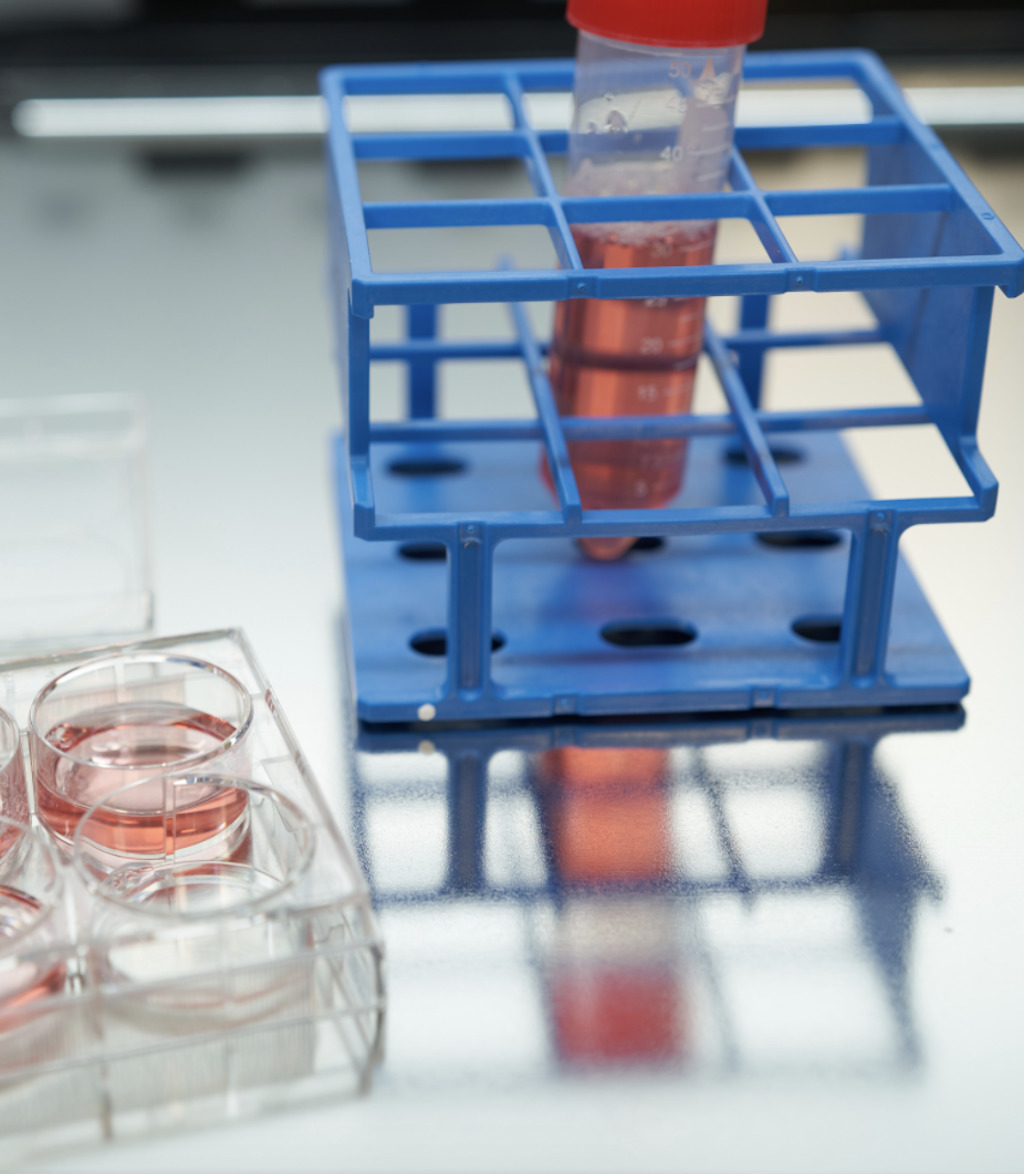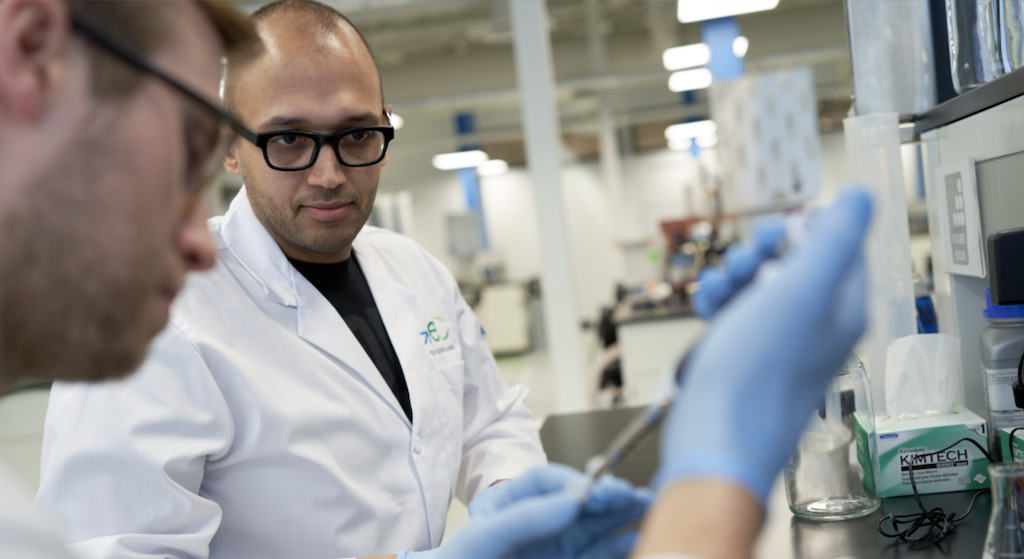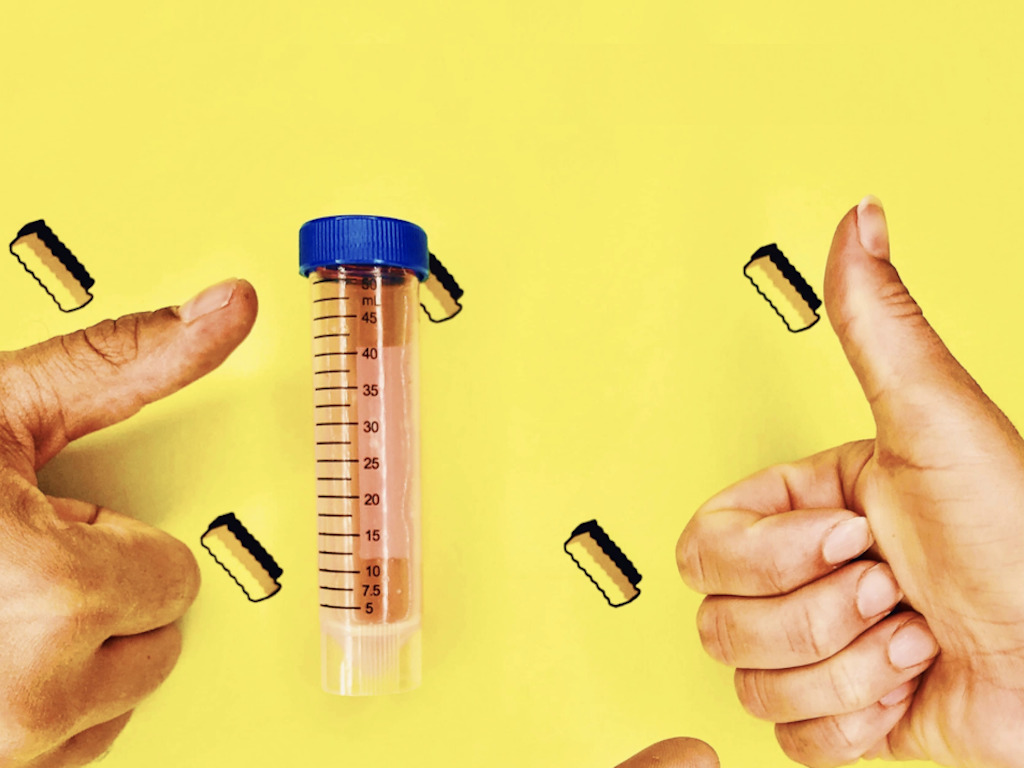4 Mins Read
Future Fields, the Y Combinator-backed Canadian startup creating custom growth media for the cultivated protein industry, has announced the closing of a US$2.2 million seed funding round. The firm also revealed that it has shipped out its first proprietary FGF2 growth factor protein, which does not require non-slaughter-free fetal bovine serum (FBS), to cell-based meat producers to bring mass-market cost and scale to the industry.
Future Fields has raised US$2.2 million in seed financing led by San Francisco venture capital Bee Partners, the company announced on Thursday (February 25). The round also saw participation from Pioneer Fund, Narrative Fund and existing investor Y Combinator. The funds will go towards its ongoing R&D efforts to expand its platform of bioactive growth factors, which are designed for large-scale and low-cost in order to “unleash cellular meat as a competitive mass-market product”.
The Alberta-based startup also revealed that it has sent out its first commercial product to various cultivated protein producers, its proprietary FBS-free cellular growth media: FGF2 protein. With cell-based growth media remaining the most critical and expensive component of cellular agriculture production, Future Fields says that its product will help its clients cultivate meat at an “exponentially” lower cost, a crucial step in the race to push out unsustainable animal agriculture.
Currently, it is estimated that growth factors and cell culture media take up anywhere between 55-95% of the marginal cost in manufacturing cell-based foods.

The shipment of our proprietary FGF2 shows that our novel platform provides a real-world solution to that problem and unleashes the full potential of cellular agriculture.
Lejjy Gafour, Co-Founder & CEO, Future Fields
“One of the critical problems facing cellular agriculture is the lack of high-quality, customised growth media at a cost and scale that can support mass-market production,” commented Future Fields CEO Lejjy Gafour, who co-founded the startup with COO Jalene Anderson-Baron and CSO Matt Anderson-Baron in 2018.
“The shipment of our proprietary FGF2 shows that our novel platform provides a real-world solution to that problem and unleashes the full potential of cellular agriculture,” Gafour added.
In the future, Future Foods says that it will develop more growth factors tailored and customised to specific cell types for different customers and clients’ needs.
Similar ventures have been launched recently, also with the aim of lowering manufacturing costs of cultivated protein producers in the race to commercialise. So far, the only firm that has managed to gain regulatory approval for commercial sale of cultured meat is San Francisco-based Eat Just, whose cultured chicken bites are available in Singapore, but experts are keenly watching on for more food techs to bring their products to market in the near future.

One of the critical problems facing cellular agriculture is the lack of high-quality, customised growth media at a cost and scale that can support mass-market production.
Lejjy Gafour, Co-Founder & CEO, Future Fields
Singapore-based cell-based milk maker, TurtleTree Labs, has recently launched a dedicated venture to bring cost-effective growth factors to the industry. Called TurtleTree Scientific, the startup’s new offspring has already partnered with Dyadic, the biotech behind the C1 gene expression platform used by the likes of DuPont, to jointly produce food-grade growth factors at high-yields and for low-cost in bioreactors.
TurtleTree Labs’ co-founder and chief strategist Max Rye says that this will mean enough of a cost reduction to a “price point that will make cellular agriculture a reality for all”.
Other cell-based protein startups have doubled down on their own scientific research to develop their original growth factors, such as two-year-old South Korean startup CellMEAT, who has recently raised US$4.5 million to scale its technology. So far, it has developed its own cell-culture method and cell-culturing medium, which does not require the use of FBS.
It’s a feat that Dutch cultivated beef pioneer Mosa Meat, who has brought its Series B round to a whopping US$85 million following a third and final close, has also achieved since its founding in 2013. Mosa Meat has already slashed the cost of its growth medium by 88-fold and removed FBS from its process.
All images courtesy of Future Fields.




